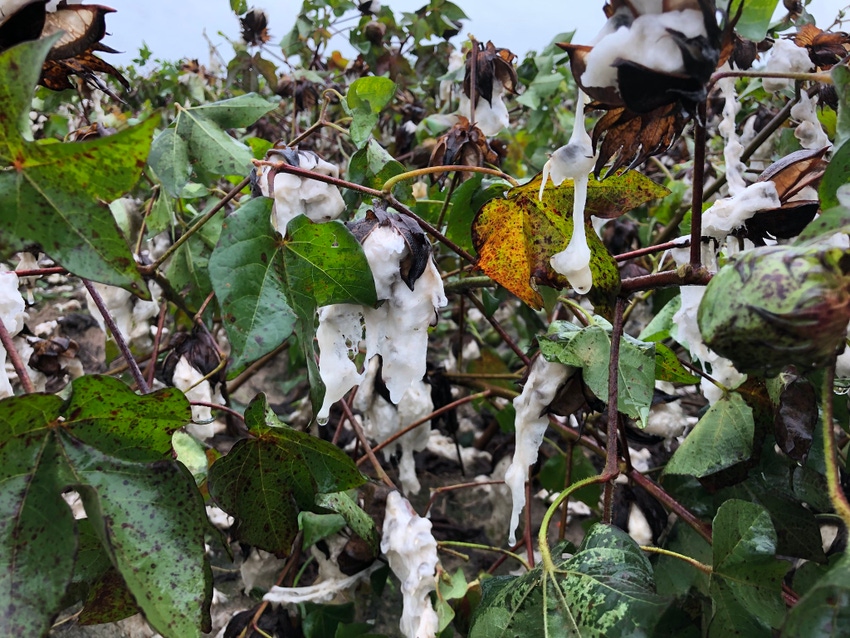
Hurricane Florence could not have come at a worse time for North Carolina agriculture.
“We are in the middle of harvest season on some crops, just beginning harvest season on some and haven’t really begun on others,” said North Carolina Farm Bureau President Larry Wooten in a Monday afternoon interview with Southeast Farm Press following the weekend storm.
“Our tobacco crop was a little late this year. Fifty percent of the tobacco was still in the field and the best quality tobacco was still in the field. It is yet to be determined whether that tobacco that is left in the field will be salvageable or not. It depends on the temperature and the wind damage. In some areas we know it won’t be salvageable,” he said.
As for cotton, Wooten says preliminary reports show damage ranging from very little to a total loss. He is concerned about the damage by wind and rain to the cotton that has already opened up.
“We haven’t begun peanut harvest yet. Our peanuts are still in the ground. If the water gets off of them, with blue skies and the wind blows with these sandy loamy soils, these peanuts will probably be OK, but I’m not sure.”
Wooten is also concerned about North Carolina sweet potatoes because 75 percent of the crop is still in the field. Quality and yield could be down this year, depending on soil type or if the sweet potatoes remain under water for an extended period of time. “They could sour and rot, and that certainly would not be a very marketable quality potato. If sweet potatoes are on a hill, and a lot of them are, then they can dry out and they can be dug, and we could be OK,” Wooten said.
Wooten is also concerned about the North Carolina soybean crop. The North Carolina Soybean Association notes that due to the timing of the storm, most of the soybeans in the state are not mature and at significant risk of damage due to moisture or flooding.
Wooten said corn should be in better shape than other crops because much of the corn is grown in eastern North Carolina, and farmers worked around the clock with the help of other farmers and their neighbors to harvest much of the crop before the storm.
When it comes to crop insurance, Wooten urges farmers to remain patient. “You can’t adjust all of those claims in one day, two days or one week. We’re going to ask folks to have patience with crop insurance. In our case with our insurance company, if your adjusters can’t get out and travel the roads and get to the places, you can’t really adjust the claims. We had a lot of claims that have been filed online, which is a good thing.”
Wooten says he is confident North Carolina farmers will persevere. “Our thoughts and concerns go out to those farmers and farm families. In North Carolina, we’ve been here before. We know what this is. We don’t like it. We will weather this storm, but it will take some time,” he said.
About the Author(s)
You May Also Like






